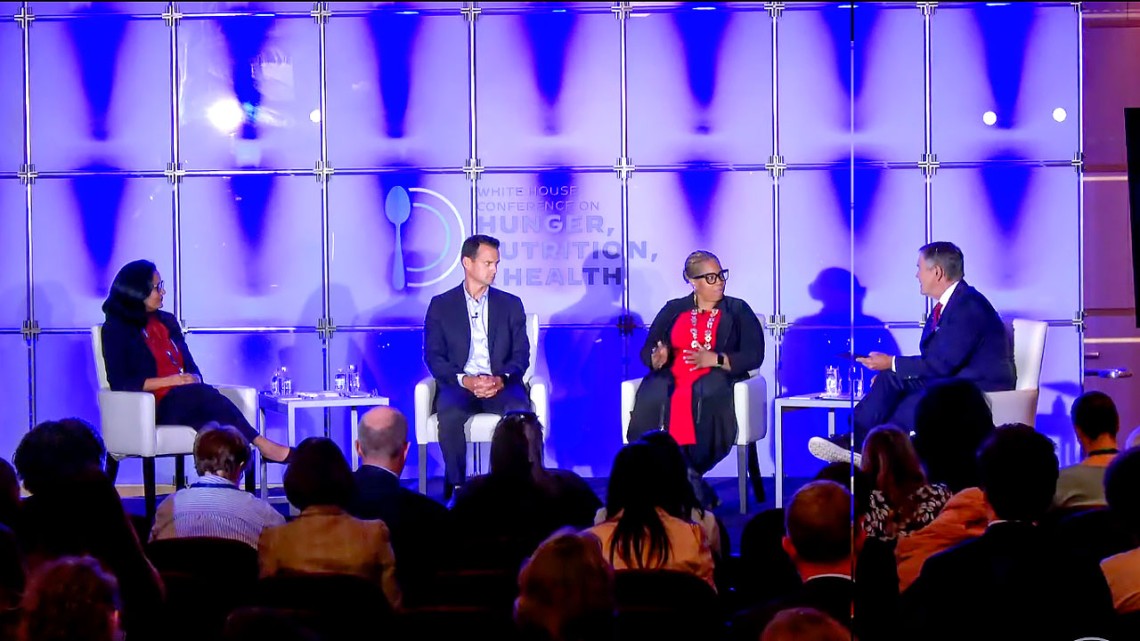
Angela Odoms-Young, second from right, associate professor in the Division of Nutritional Sciences, speaks at the White House Conference on Hunger, Nutrition and Health.
Work with communities to reduce hunger, expert tells White House panel
By Galib Braschler
Researchers need to collaborate with communities to better address persistent food insecurity, a Cornell nutrition expert said at the White House Conference on Hunger, Nutrition and Health, held Sept. 28.
“This idea of just sitting in an ivory tower, particularly among the younger faculty, they’re not interested in that. They want to be out in the community, they want to see change,” said Angela Odoms-Young, an associate professor in the Division of Nutritional Sciences, housed in both the College of Human Ecology and the College of Agriculture and Life Sciences. “We have more faculty from BIPOC communities, and they want to see the academy do something in the community.
“Food policy supporting what’s happening locally is critical. If we can have effective policy that can pivot and those pivots stay permanent, it’s important to keep that momentum going. Those shifts are effective,” she said.
Odoms-Young was invited to the conference as a featured expert to share her perspective as both a researcher and practitioner, with experience running nutrition programs in New York state and Chicago that aimed to provide nutrition education to low-income families with children. In addition to her role as a faculty member, she is director of Cornell’s Food and Nutrition Education in Communities Program and New York State Expanded Food and Nutrition Education Program.
Odoms-Young was part of the Task Force on Hunger, Nutrition and Health, a nongovernment, nonpartisan group of subject matter experts that provided recommendations ahead of the conference. The 2022 conference sought to catalyze the public and private sectors around a coordinated strategy to drive transformative change in the U.S. to end hunger, improve nutrition and physical activity, and close the disparities surrounding them.
“We need programs that are effective, but we also have to make sure they close gaps. A lot of the gaps surrounding food insecurity have persisted for decades,” Odoms-Young told former Sen. Bill Frist, panel moderator and cardiac surgeon who represented Tennessee in Congress for more than a decade. “It’s critical with this conference that we innovate, we think about boots on the ground, those who are implementers in communities… and we also think about people in communities.”
In her remarks, she recognized the work of Cornell Cooperative Extension in bringing local experience and research-based solutions to communities across every county of New York state, helping families and communities thrive in a rapidly changing world.
As the panel discussion concluded, Odoms-Young said the White House conference can only be considered effective if it changes the lives of families, specifically by “closing food insecurity gaps created by historical and structural oppression that has occurred over hundreds of years.” While finding innovative solutions will take time and unprecedented cooperation between academia and communities, her last word to conference attendees was one of optimism.
“It’s time to see that change, and I know we can do it,” she said.
Galib Braschler is a communication specialist in the College of Human Ecology.
Media Contact
Get Cornell news delivered right to your inbox.
Subscribe
